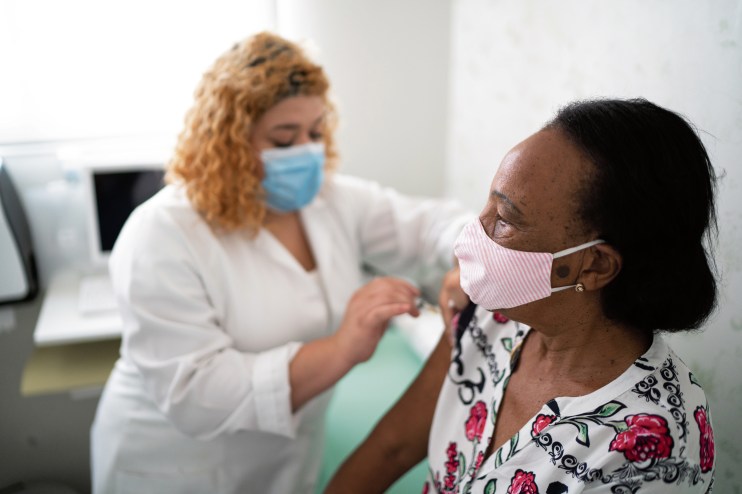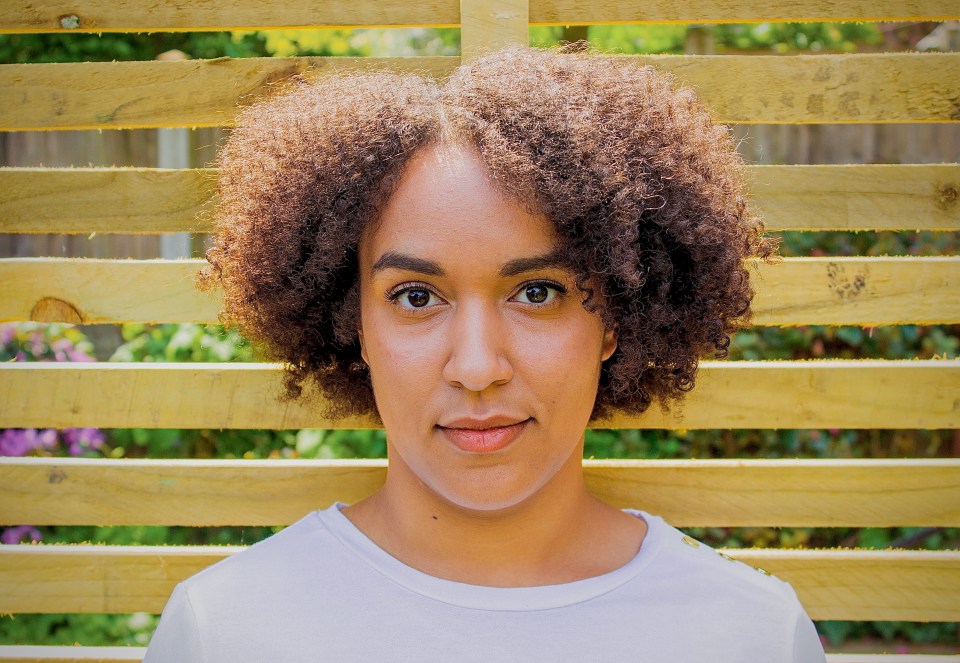Booking your winter vaccines couldn’t be easier and it could save your life

Get Vaccinated Get Winter Strong – check if you’re eligible at nhs.uk/wintervaccinations and book your appointment now
Like it or not, the warm summer months are long gone and colder weather is upon us. This brings with it the winter virus season, when we see a sharp increase in debilitating and potentially dangerous viruses, especially for those in at-risk groups.
Last winter, over 141,000 people in England were hospitalised with COVID-19 and a further 49,000 were hospitalised with flu. Both viruses can be life threatening – last winter, more people died from flu than COVID-19, with research showing that you’re more likely to be seriously ill if you get them both at the same time.
The good news is that those at the most risk can take their health and wellbeing into their own hands by making sure they are vaccinated. The risk of becoming seriously ill from these viruses is greatly reduced for those who are vaccinated.
Taking up both the flu and Covid-19 vaccines ahead of winter provides the best level of protection
Some people don’t feel the need to book winter jabs because they have previously been vaccinated or have been ill from COVID-19 – but it’s important to remember that immunity wanes over time. After 6 months, the effectiveness of the COVID-19 vaccines against hospitalisation in adults aged 65 years and older drops from about 85% to 60%, which can increase your risk of hospitalisation by up to 3 times. Thankfully, within 14 days of receiving your seasonal COVID-19 vaccine, your immunity will be increased to about 90% protection against serious illness.
Those aged between six months and 65 years are eligible for NHS seasonal flu and COVID-19 vaccines if they fall into a clinical ‘at risk’ category, including those with chronic lung disease such as asthma; chronic heart, liver or kidney disease; neurological diseases such as Parkinson’s or motor neurone disease; severe or multiple learning disabilities; diabetes; asplenia or splenic dysfunction (such as that which can occur with coeliac disease or sickle cell anaemia); a weakened immune system due to disease (such as HIV/AIDS) or treatment (such as cancer treatment); morbid obesity (defined as BMI of 40 and above).
Also eligible are those aged 65 years and over; pregnant women; those in long-stay care homes; carers; close contacts of immunocompromised individuals; and frontline health and social care workers.
Children are eligible for flu nasal spray vaccines if they were aged 2-3 on 31 August 2023, are in primary school or are in years 7-11 in secondary school. If your child is aged between 6 months and 2 years and has a long-term health condition that makes them at higher risk from flu, they’ll be offered a flu vaccine injection instead of the nasal spray.
The side-effects of both vaccines are usually mild and do not last for more than a few days. If you have any reservations, you can talk them through with your GP or practice nurse. Booking your vaccinations is quick, easy and convenient, so if you’re eligible, book now to make sure you’re fully protected as virus season kicks in.
Dr Susan Hopkins, Chief Medical Advisor at UK Health Security Agency, said: “Last year, the flu virus was estimated to be responsible for over 14,000 excess deaths and tens of thousands of hospitalisations, including over 10,000 in children.
“Last winter the vaccine prevented an estimated 25,000 hospitalisations, but this could be even greater if all those eligible for the flu vaccine came forward this year. Pregnant women, young children and those with chronic health conditions are particularly vulnerable, and we have good evidence to suggest this year’s vaccine will offer good protection.
“Taking up both the flu and COVID-19 vaccines ahead of winter provides the best level of protection against severe illness – helping keep you winter strong – and will help ease the pressure on the NHS.”
Deputy Chief Medical Officer Dr Thomas Waite adds: “Vaccines have saved many lives over the years for both flu and more recently COVID-19. But we must not be complacent – infections will rise once again this winter, so it’s really important people get both their COVID-19 and flu vaccines if eligible.
“Vaccines are the best way to protect yourself from serious illness and will help reduce pressure on the healthcare system.”
How to book your winter vaccinations, trouble free
The NHS is offering the vaccines through booked or walk-in appointments at thousands of sites across the country. Most people will receive both vaccines at a GP practice or a local pharmacy.
If you are pregnant, you may also be able to get the flu and COVID-19 vaccines through your local maternity service. You will be eligible at any stage of your pregnancy to help protect you and your baby.
Booking your vaccines is quick and easy and appointments usually take just a few minutes.
You can get both vaccines in the same visit where possible, to get protected against both viruses. If this is not possible, it is better to get each vaccine as soon as you can rather than waiting.
The NHS App is a simple and secure way to access a range of NHS services, including mental health services. It is available to anyone aged 13 and over who are registered with an NHS GP practice. Visit: nhs.uk/nhs-app or download it from the App Store or Google Play.
‘I don’t want to add more chronic fatigue into my life’

Living with multiple sclerosis means Georgia Bondy is eligible for a flu and COVID-19 vaccine – and she’s keen to protect herself ready for winter
Georgia Bondy was diagnosed with MS during lockdown, so now she does everything she can to protect herself against flu and COVID-19, which is why the 29-year-old has had both jabs this year.
“I was diagnosed with MS slap-bang in the middle of the pandemic. It came on rather dramatically when I lost the sensation from my chest downwards over a few days,” says Georgia, who lives in London.
“The unfortunate thing about health conditions is that they can affect anyone.
“I have the kind of MS that’s called relapse remitting, where symptoms might last a week or a few months and then I tend to recover, although maybe not entirely. I lost the sight in one eye for a few months and then it came back.”
Georgia, who runs an online platform to empower chronically ill and disabled people to live well, knew that she was at risk of more serious illness if she caught COVID-19.
“I’ve had COVID-19 twice and it can be worse for me than it is for other people, but I’d already had a couple of vaccinations, so it was much less severe than it could have been. I was very fatigued and couldn’t get up for a few days, but I wasn’t hospitalised.
“Last week I had the COVID-19 vaccination and the week before I had the flu jab.I wasn’t excited about the potential side effects, but they are mild and only last a day or two and that is better than getting seriously ill. I don’t want to add more chronic fatigue into my life.
“My background is Caribbean and I understand some of the community in London are worried about vaccines. It’s totally valid to feel like getting a vaccine is a faff or you don’t want the side effects, but it’s the most sensible thing to do in the long term. You don’t want the long-term effects of flu or COVID-19 to add to your condition, with extra fatigue or lung issues.”